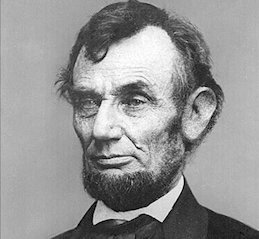
|
Some Common Myths Thought to be True - Myth 113
Myth 113: President Lincoln's Emancipation Proclamation Freed the Slaves
President Abraham Lincoln issued the Emancipation Proclamation on January 1,
1863, as the nation approached its third year of bloody civil war. The
proclamation declared "that all persons held as slaves" within the rebellious
states "are, and henceforward shall be free."
|
| President Lincoln | |
|
Although the Emancipation Proclamation did not end slavery in the nation, it
captured the hearts and imagination of millions of Americans and fundamentally
transformed the character of the war. After January 1, 1863, every advance of
federal troops expanded the domain of freedom. Moreover, the Proclamation
announced the acceptance of black men into the Union Army and Navy, enabling
the liberated to become liberators. By the end of the war, almost 200,000 black
soldiers and sailors had fought for the Union and freedom.
|
|
| ⇦ Back to Myth 112 Return to Myth Choices Page 8 On to Myth 114 ⇨ | |